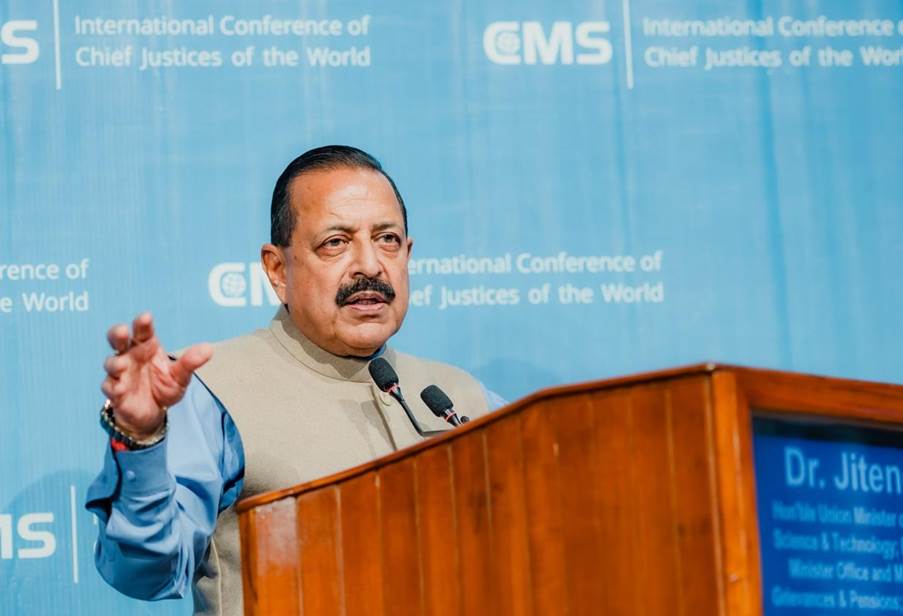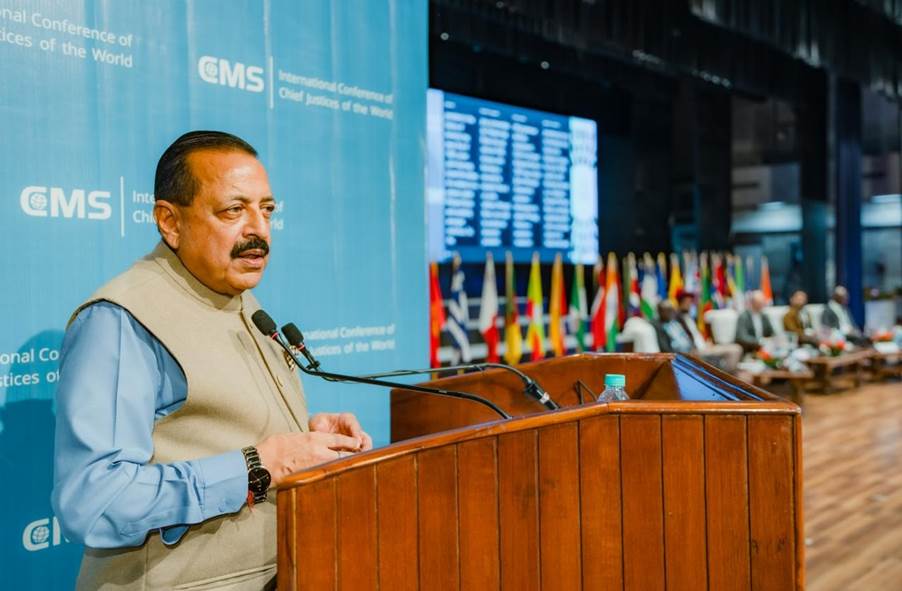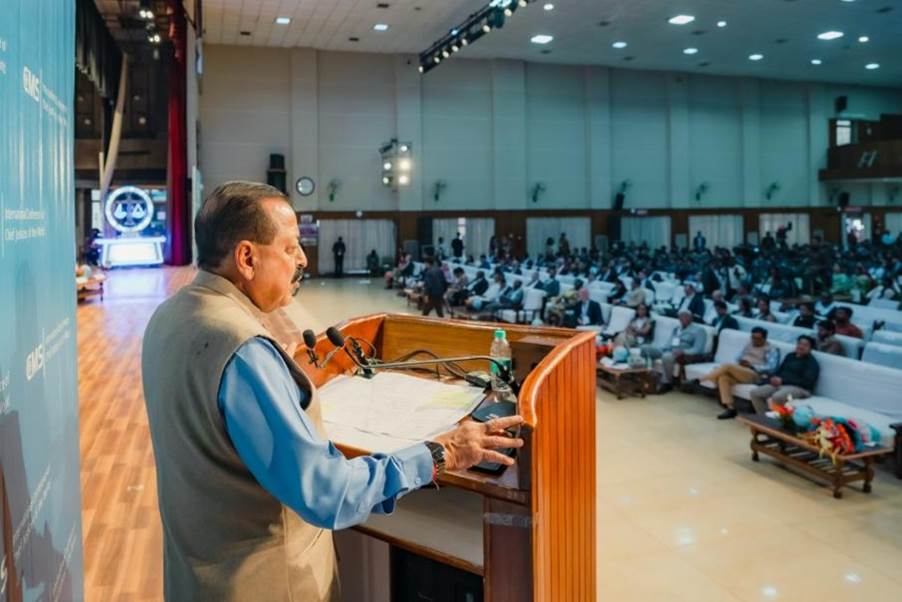India Capable of Leading Global Movement for ‘Planetary Stewardship’: Dr. Jitendra Singh
India Capable of Leading Global Movement for ‘Planetary Stewardship’: Dr. Jitendra Singh
Union Minister of State (Independent Charge) for Science & Technology; Earth Sciences; MoS PMO, Personnel, Public Grievances, Pensions, Atomic Energy and Space, Dr. Jitendra Singh today said that India is capable of leading a global movement for “planetary stewardship” and called for a global coalition to address the pressing challenges of climate change, environmental degradation, emerging technologies, and planetary governance.
Addressing the panel discussion on “Climate Justice and Planetary Stewardship: Legal Frameworks for Existential Challenges” at the 26th International Conference of Chief Justices of the World at the World Unity Convention Centre, CMS Kanpur Road, Lucknow, Dr. Jitendra Singh emphasized that judges today stand at the crossroads of constitutional interpretation, scientific understanding, and moral responsibility, making their role pivotal in shaping the future of humanity.
Dr. Jitendra Singh said that the world is living through an era of “interconnected crises”- climate change, pandemics, cyber threats, ocean degradation, and rapid technological disruptions- none of which respect national boundaries. He stressed that these global threats demand global legal responses rooted in equity, integrity, and intergenerational justice.
The Minister noted that India, under Prime Minister Narendra Modi, has already positioned itself at the forefront of several future-facing missions- from the Deep Ocean Mission and National Quantum Mission to ambitious initiatives in cybersecurity, biotechnology, AI, and space reforms. These initiatives, he said, demonstrate India’s preparedness to contribute meaningfully to global environmental governance and technology regulation.
Calling attention to emerging legal challenges, such as privacy vs. surveillance, liberty vs. national security, ownership vs. data protection, and the rise of AI-generated misinformation- Dr. Jitendra Singh said that the judiciary will increasingly be called upon to interpret laws in domains that were unimaginable even two decades ago, including space debris and outer space mining, deep ocean resource exploitation, cross-border climate accountability, and the evolving landscape of cybersecurity and AI ethics.
Dr Jitendra Singh urged that India and the global community update existing legal frameworks, especially in areas like space and oceans, where traditional laws no longer address modern complexities. Highlighting the concept of intergenerational justice, he said that every legal decision on climate, energy, space, or environment affects not just current citizens but future generations:
“Climate change, ocean degradation, and space debris will outlast all of us-their consequences will be borne by the young boys and girls sitting here, and by the generations yet to come.”
The Minister called for embedding fiduciary duties into constitutions, treaties, and court judgments to protect the rights of future generations and uphold planetary stewardship.
Dr. Jitendra Singh advocated for an effective global environmental law and a Planetary Common Framework to govern oceans, polar regions, atmosphere, and outer space. He mentioned the possible need to update existing instruments to prevent militarization, unchecked resource extraction, and exploitation of shared planetary resources.
The Union Minister noted that just as illegal mining is now seen on the moon, similar risks exist in the deep ocean, which holds vast reserves of critical minerals. Without legal safeguards, he cautioned, future disputes and ecological damage could escalate.
The Minister observed that courts worldwide are increasingly enforcing environmental rights, net-zero commitments, and ecosystem protections. Litigation, he said, needs to be seen as a tool for accountability and policy reform, especially when governments lag on climate action.
The Minister praised the role of jurists in shaping climate jurisprudence and urged stronger judicial cooperation across nations- “Judges can no longer be judges only of a constitution, they are, in today’s age and time, judges of humanity’s shared future.”
Dr. Jitendra Singh expressed gratitude to CMS Director Dr. Bharti Gandhi and CMS President Dr. Roger Henry for hosting a conference of global significance, noting the institution’s long-standing contribution to education, civilizational values, and thought leadership. He appreciated the presence of distinguished chief justices, jurists, academicians, and students from across the world.
The Minister also acknowledged the contribution of panellists from diverse backgrounds, emphasizing that cross-domain dialogues, between scientists, astronauts, doctors, and jurists-enrich the global discourse on planetary governance.
Concluding his address, Dr. Jitendra Singh said the conference strengthens India’s aspiration to emerge as Vishwa Bandhu-a trusted global partner advancing justice, sustainability, and the welfare of mankind. He expressed confidence that the deliberations in Lucknow will set the stage for a global movement in larger collaboration for climate justice and planetary stewardship.


